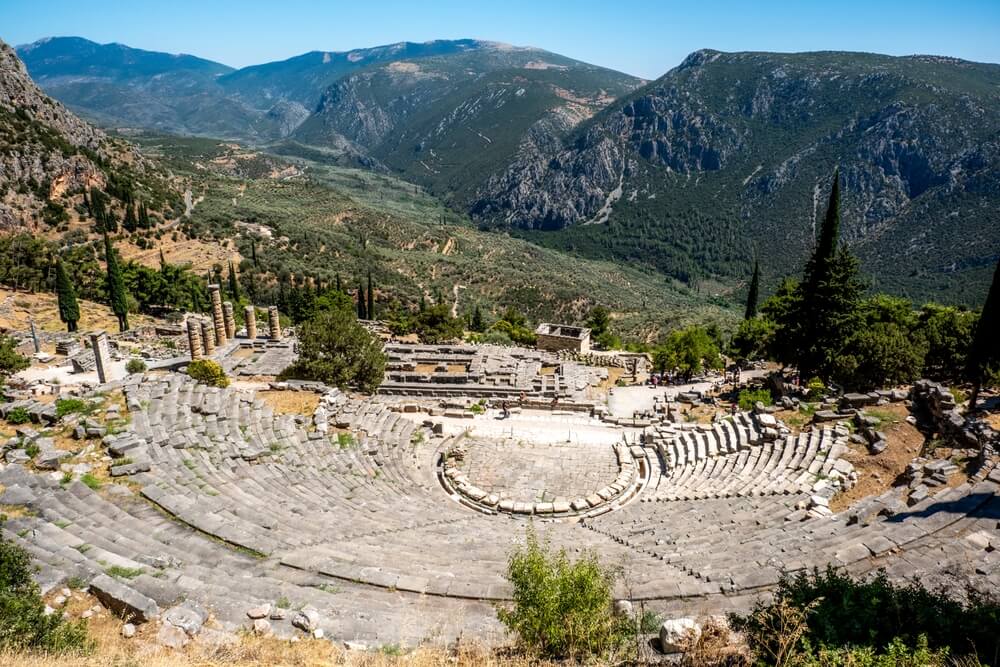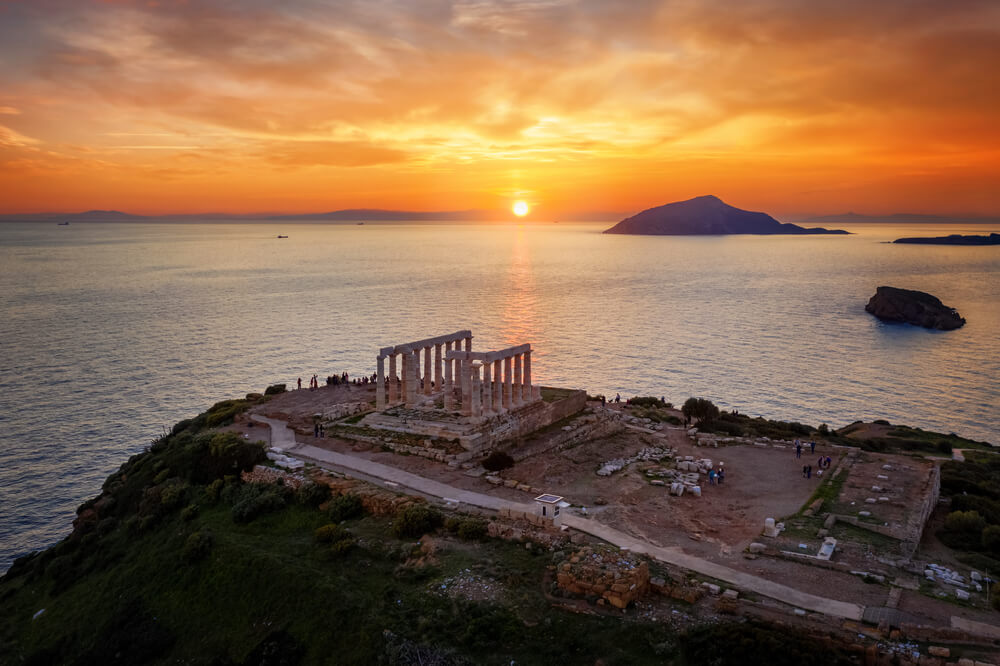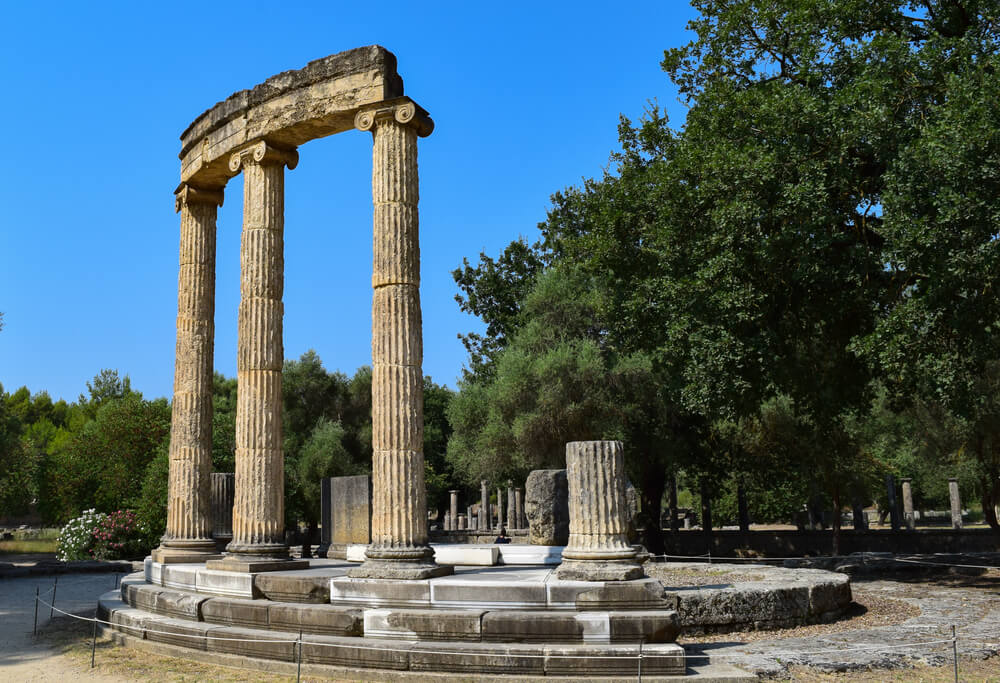City of Athens
Athens is a city that never sleeps, a mosaic of diverse elements with a long history and culture. It’s a whole open-air museum.
We welcome you to the glorious Athens, one of the oldest cities in the world, with its recorded history reaching up to 3,200 B.C.. Athens was to become the leading city of Ancient Greece, the cradle of civilization and birthplace of democracy. Its admirable cultural achievements during the Golden Age of Athens laid the foundations of Western civilization.
But how did the name of the historic city come about, where today millions of travelers flock to visit its neighborhoods and monuments that stand on the same spot after thousands of years?
The first earth-born king of Attica and founder of the city of Athens, a strange creature, was depicted as a half-man and half-snake. The very first name of the city was Cecropia, after the name of Cecrops, having previously borne the name of Acte.
The Myth
According to Greek mythology, the gods thought that they should take the cities of Greece under their protection, to build temples for the people and offer them sacrifices. So, they began to divide the cities among themselves, but when two gods wanted the same city, they ended up quarreling with each other.
Athens was claimed by both, goddess Athena and marine god Poseidon. However, one was the god who could become the protector of the city. However, one was the god who could become the protector of the city. The two rival gods gathered on the sacred rock of the Acropolis together with the gods of Mount Olympus.
The Olympian gods would be the judges in the dispute between the two gods and would make the final decision together with Cecrops. Poseidon and Athena had to give a gift. Whoever gave the best one, would become the patron god of the city.
Both appeared in front of Cecrops, who was present at the contest as a witness. Poseidon was the first one to present his gift. He strokes his trident on the ground of the Acropolis and immediately a stream of gurgling salt water appeared.
Then, it was the turn of the goddess of wisdom, Athena, to offer her gift. She knocked her spear to the ground and an olive tree appeared, with slender branches full of fruit.

The god of the gods, Zeus, announced the end of the competition and urged the other gods to decide to whom the city would be given.
King Cecrops looked at the surrounding area, from the rock of the Acropolis and noticed that there was plenty of salty water from the seas that embrace the city. In contrast to the gift offered by the sea god Poseidon, Athena’s olive tree was the first to sprout throughout the country.
This tree was even useful, as it would provide the inhabitants with food, olive oil, and wood. The divine gift to the Athenians, given by the goddess Athena, was useful for the nutrition, lighting, heating, health, and beauty of the Athenians. Thus, the city was finally, with a unanimous decision, named “Athens”, in honor of the goddess.
 However, Poseidon got angry with Cecrops. He cursed the city to never have enough water. From then on, the problem of water scarcity, that afflicted Athens, began. Since then, the olive trees around Athens have become sacred.
However, Poseidon got angry with Cecrops. He cursed the city to never have enough water. From then on, the problem of water scarcity, that afflicted Athens, began. Since then, the olive trees around Athens have become sacred.
Athena was regarded as the patron and protectress of various cities across Greece, particularly the city of Athens, from which she most likely received her name, according to the researchers. The Parthenon on the Athenian Acropolis is dedicated to her, amongst other temples and monuments.
Today, Athens is a city that never sleeps, a mosaic of diverse elements with a long history and culture. It’s a whole open-air museum. Whatever stone you lift, it hides a history of thousands of years. The present finds a special way to unite with the past through the flow of time and human achievements. Every neighborhood is unique, every corner holds new surprises. All you must do is explore the city following in the footsteps of the great ancient Greeks who changed the course of history.
To understand the deeper aspects of modern Athens and to experience its lifestyle and culture in its most authentic form, then this unique Athens Walking Tour is for you. They say that love passes through the stomach, so we make sure that your passion for Athens will be sealed with an exquisite dinner and Greek flavors from local ingredients that will excite your palate and your senses.












